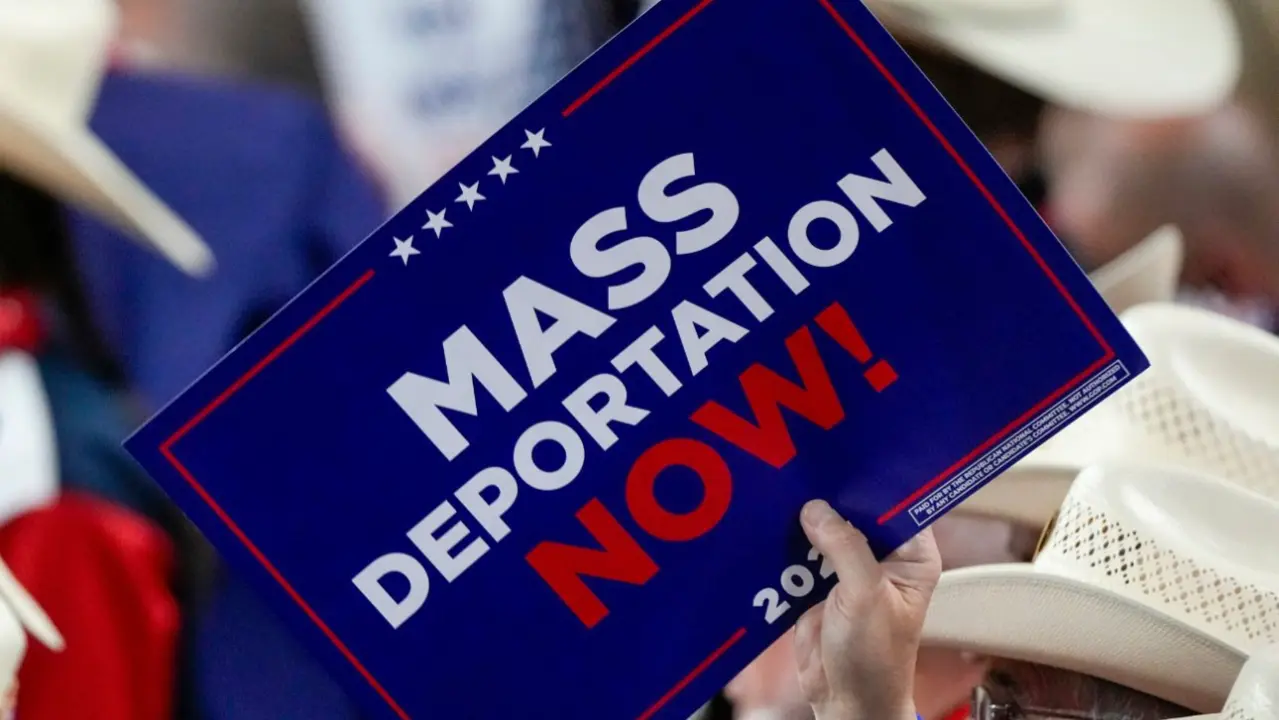Updated 17 March 2025 at 07:03 IST
Too Late...: Trump Sends Hundreds of Immigrants to El Salvador Amid Court Order to Stop Deportations
The court order issued by Judge Boasberg came late to prevent two planes from already being en route—one headed for El Salvador, and the other for Honduras.
- World News
- 4 min read

Washington: The Donald Trump administration on Saturday moved forward with the deportation of hundreds of immigrants to El Salvador, despite a federal judge issuing a temporary order to halt the flights, AP reported.
The court order, which was issued by US District Judge James E. Boasberg, came too late to prevent two planes from already being en route—one headed for El Salvador, and the other for Honduras.
Judge Boasberg's ruling, which was meant to block deportations under the Alien Enemies Act, effectively halted future removals, but the planes had already left by the time the order was given. Lawyers informed the court that the deportations were in progress when the ruling was made, but Boasberg's verbal directive to turn the planes around was not formally included in his written order, allowing the flights to continue.
Also read | White House Shares 'ASMR' Video Showing Deportees in Chains During Deportation Flight | Watch
Advertisement
White House Defends Deportation
White House Press Secretary Karoline Leavitt responded to the questions, dismissing claims that the administration had ignored the court order. In a statement, Leavitt argued, "The administration did not refuse to comply with a court order. The order, which had no lawful basis, was issued after terrorist TdA aliens had already been removed from US territory." The acronym "TdA" refers to the Tren de Aragua gang, which Trump had targeted in his recent declaration.
The Department of Justice, which filed an appeal on Sunday, stated that the Trump administration would halt the use of the wartime declaration for future deportations unless Boasberg's decision is overturned.
Advertisement
El Salvador Celebrates Deportations
Trump’s allies, including Salvadoran President Nayib Bukele, expressed satisfaction with the deportations. Bukele, who agreed to house around 300 immigrants for a year for $6 million in his country’s prisons, posted on social media saying, "Oopsie…Too late," alongside an article detailing the court's ruling. White House communications director Steven Cheung shared the post in agreement.
Secretary of State Marco Rubio also weighed in, noting, "We sent over 250 alien enemy members of Tren de Aragua which El Salvador has agreed to hold in their very good jails at a fair price that will also save our taxpayer dollars."
As per footage released by the Salvadoran government, the deported individuals are being escorted off planes and into police custody. The men were shackled and escorted under heavy security, with officers in riot gear and a large convoy of buses waiting to transport them to prison.
The deportees were taken to the notorious CECOT facility, part of President Bukele’s crackdown on gang violence. El Salvador's security measures included armed military personnel and a helicopter overseeing the transport of the deportees, who were shaved, changed into prison uniforms, and placed in cells.
Venezuela Condemns US, Compares it Withb Nazi's Concentration Camps
The deportations were carried out under Trump’s invocation of the Alien Enemies Act of 1798, a law used only three times in US history. The act grants the president extraordinary powers to remove foreign nationals deemed a threat to national security, but its use has sparked controversy.
Venezuela’s government condemned the move, with officials describing Trump’s use of the law as reminiscent of "the darkest episodes in human history," comparing it to the horrors of Nazi concentration camps and slavery.
The Trump administration has not provided evidence that the immigrants were members of the Tren de Aragua gang, or that they had committed any crimes in the United States. Furthermore, the administration included two high-ranking members of the Salvadoran MS-13 gang in the deportation flights.
Court Ruling Paves Way for Legal Challenges
The legal battle over the deportations continues. Boasberg’s ruling temporarily blocks further deportations of Venezuelans under the Alien Enemies Act, allowing a 14-day window for further legal proceedings. The plaintiffs, who filed a lawsuit on behalf of five Venezuelans detained in Texas, argued that the law could be misused to falsely accuse individuals of belonging to Tren de Aragua without any chance to defend themselves.
Boasberg’s ruling was critical, noting that the Alien Enemies Act has never before been used outside of a formally declared war. He also questioned whether Trump’s invocation of the law exceeded his legal authority. A hearing has been scheduled for Friday to hear additional arguments.
The Trump administration’s actions continue to raise questions about the legal and humanitarian implications of using the Alien Enemies Act, a law invoked during wartime and previously applied during World War II to detain Japanese-Americans. Legal experts, such as Steve Vladeck of Georgetown University Law Center, have warned that the use of such sweeping powers could set a dangerous precedent for future deportations and legal challenges.
As the case continues to unfold, the Trump administration faces increasing pressure to justify its actions both in court and on the international stage.
(Inputs from AP)
Published By : Tanisha Rajput
Published On: 17 March 2025 at 07:03 IST
